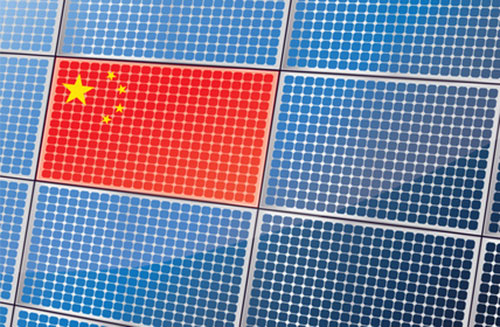You remember the spiel readers? About how globalisation was going to make an awful lot of people in the Western world very rich er … save the world through the breaking down of trade barriers.
The process, as far as this humble writer could gather, was that by giving fabulously wealthy multinational companies access to poorer countries’ resources and markets ( the so-called “level playing field”), benefits would then somehow flow through to us all.
We heard a lot about it during the nineties and early noughties though recently things have cooled off a little and it may be that the production of solar energy may have played a part.
Two vaguely linked articles thundered into your correspondent’s inbox this week. The first was from the Observer, an article by Heather Stewart which outlined the battle the new WTO director general will face over the apparent retreat from globalisation. Interestingly the article cites the solar power industry as one of the central issues with the United States accusing China of unfairly subsidising its solar industry to undercut the rest of the world. The US (no shrinking violet when it comes to subsidising industries) appears to resent the fact that another country is cornering the solar market.
The other outlines the fact that German manufacturers are now cutting their production, unable to compete with cheaper Chinese-made solar panels.
So is globalisation dead now that important industries such as manufacturing solar panels are increasingly denied to major Western companies?
Or am I being too cynical? Perhaps globalisation has been useful. It has helped a number of less wealthy countries (such as China) boost its production to the extent that it is now a world leader in many resources. Again we may cite the Chinese dominance of the solar panel market.
However I get the slightest feeling that it wasn’t quite supposed to be this way. Those captains of industry surely looked to globalisation, not to enrich less wealthy nations, but to line their own pockets. The example of the Chinese dominance of the solar panel market has shown how the globalisation racket has fallen over (for the original architects anyway).
But what has cheap Chinese solar panels meant for the average Australian solar punter? Sure much of the Aussie solar panel industry has been destroyed. BP Solar and Silex solar’s aussie manufacturing have both closed down over recent years, with plucky upstart Tindo Solar remaining as the only Australian solar panel manufacturer. (You may have seen a company called “Australian Solar Panels” advertised – but you should be aware that these are all made in China! Marketing geniuses eh!)
However the flip side is that a domestic solar system is now within the financial reach of a larger percentage of the population. The result is that solar power is no longer a “niche” form of power but available to all.
So globalisation, at least as it affects the solar industry, is a case of swings and roundabouts. Do you have a view on whether the globalisation mania has been a positive or negative for the Australian solar sector? Let rip in the comments below.


 RSS - Posts
RSS - Posts



What a pity BP Solar has gone out of business in the solar panel manufacturing department! Now I won’t be able to dump all my – ‘poorly manufactured and now failing’ – BP Solar panels back onto their doorstep where they belong!
Good on China for jumping onto the global bandwagon and usurping the intentions of western industry captains hell bent on lining their own pockets by charging exorbitant prices for poorly made products.
At least with the Chinese, we only pay low prices for the poorly made rubbish they produce – not the highly inflated prices which BP Solar demanded.
In this context, globalisation works for me.